Wanderlust creator: “the show’s not a manifesto”
Writer Nick Payne tells us how the conversation about Wonderlust was derailed by the tabloids and why it’s about more than sex…
“I should probably stop reading people’s Tweets,” says Nick Payne, with a rueful laugh. His drama Wanderlust has aired two of its six episodes and the experience has been, he tells me, weird.
Wanderlust is the funny, sad, thoughtful story of a couple whose stagnant sex life inspires them to experiment with an open marriage. It’s about the struggle to communicate honestly with each other and ourselves, and deep down, about unexpressed fear.
Not that you’d have guessed that from the thigh-rubbing headlines trumpeting its arrival. Ahead of its premiere, press coverage fixated on the show’s sexual content. Wanderlust was going to be racy! Raunchy! Sex-fuelled! Steamy! X-Rated! It was set to be the BBC’s “rudest-ever” drama, drooled one newspaper, get ready for “sex, swearing and drug-taking.”
Get ready for… not much of the sort? There was sex, yes—mostly awkward and comic—, but no more swearing than you’d overhear in a Waitrose café, and as for drugs? In episode one, two adults share a joint. By episode four, the characters spend longer ten-pin bowling than they do in bed.
Be honest, I ask Payne. Was it a case of the BBC hype machine using that old “SEX! Now I’ve got your attention…” ad trick to drum up an early buzz?
Not a bit of it, he says. “In terms of the literal press release the BBC put out, it really didn’t contain anything about the sex. We didn’t release any official stills from the show that featured any of the scenes where anyone’s half-dressed or in their underwear.” The ones accompanying the tabloid articles, most often of star Toni Collette wearing a bra, “were all screengrabs.”
That’s what made the experience so weird, Payne explains. “The notion of the sex being newsworthy was largely a thing in the tabloids. It was largely the product of the press itself using our imagery or our storylines in a way that was simultaneously making us look salacious while also damning us for doing it!” he laughs, with obvious exasperation. “The double standard was really extraordinary.”
Pearl-clutching tabloid hyprocrisy, in which TV sex is simultanously bemoaned and reproduced in high-def detail over several pages, is nothing new, Payne agrees, but that didn’t stop it being frustrating.
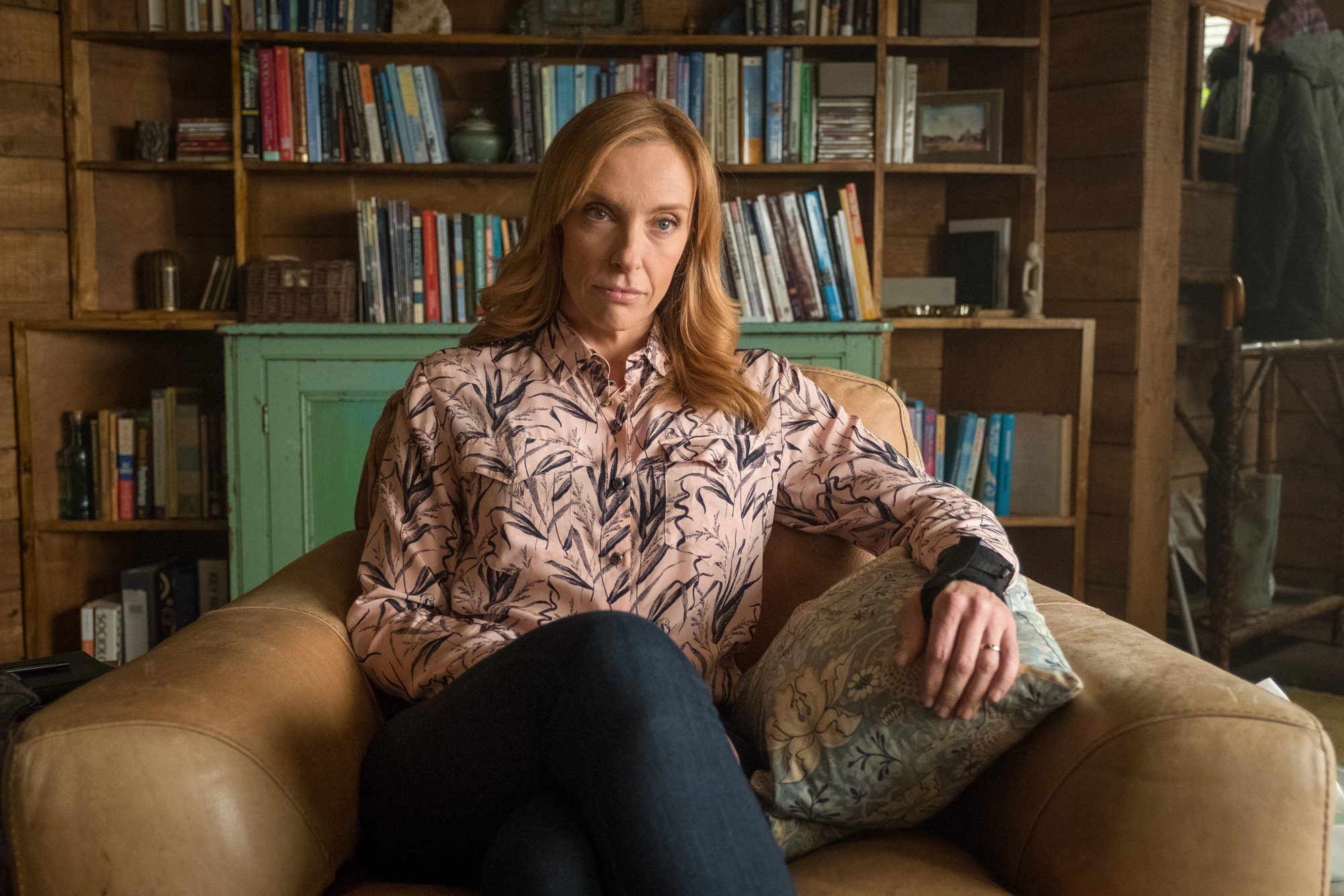
“The really weird thing was that some of the reviews were saying ‘we were promised lots of sex in the show and we didn’t get it!’ I’d assumed that a journalist in the profession would know the difference between an expectation that has been delivered by the marketing team you’re working with, or actually delivered by the papers themselves. What’s weird was… they didn’t!” he laughs. “[The tabloids] didn’t go ‘it was us, creating the hype’. Like wow, no, honest to God, it was genuinely your publication, not the BBC hype machine.”
A playwright, Wanderlust is Payne’s first television drama. Deprived of the experience of sneaking into the back of the theatre during a play’s run and watching the audience response live, he’s been reliant on reviews and social media to gauge the reaction, though is currently rethinking that approach. “I should probably just stop reading them,” he laughs, “and try and be cool about it.”
“You don’t make a TV show in a vacuum. I’m not really interested in it going on telly and not really understanding how people are responding to it, or the context that it exists in”. He was, he says, “genuinely surprised about the way that people wanted to discuss it or what they were picking up on, particularly with the first episode.”
Payne also hadn’t quite reckoned on the significance of the drama—a Netflix co-production—first airing on such a redoubtable institution as BBC One. “In a different context,” he thinks, “the focus wouldn’t have been quite so heavily on [sex].”
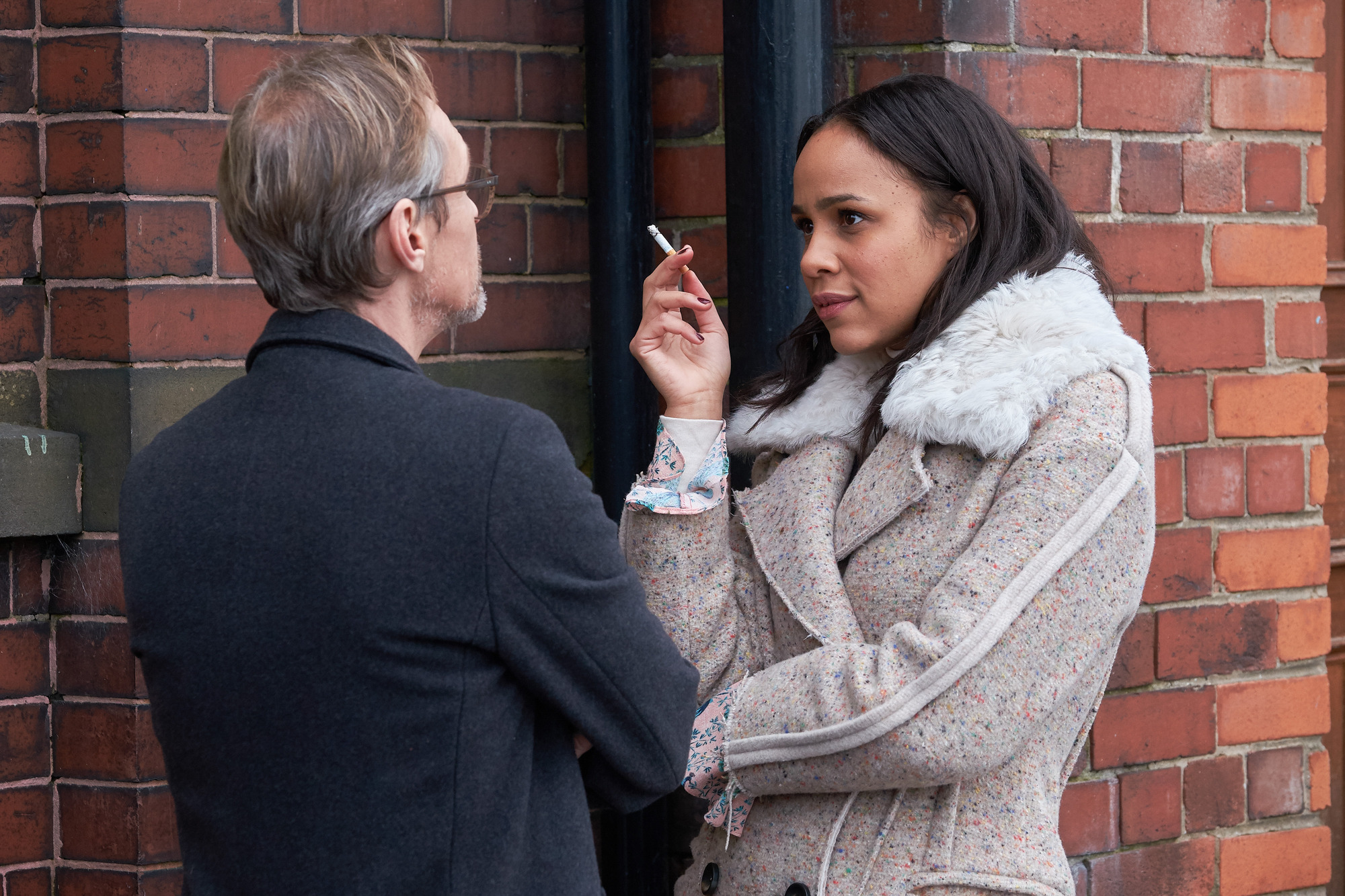
He understands that “the show won’t be for everyone who watches BBC One” but “it could be. We’re definitely not trying to alienate people or put them off.” Perhaps unfashionably, he’d love a huge audience, “but at the same time, I don’t know how to engineer that, to change the way I work or change the way I write.”
BBC One, I suggest, is the equivalent of a stand-up playing an arena. Might it be that Wanderlust’s natural audience is more… Hammersmith Apollo?
He’s not sure. “If you write a play and it goes on, the audience who can come and see it is finite. Most of my plays have been in quite small theatres, which I love, but they might only have a hundred, a couple of hundred seats across a run of three, four weeks.” The number of people who watched the first episode of Wanderlust on iPlayer, he says, “is probably greater than everything I’ve ever done ever combined. And that’s just for one week of a telly thing.” It’s a fair exchange perhaps, for a handful of critical Tweets or the odd frustrating review.
Likeably, Payne seems to take criticism on the chin. He’s refreshingly candid about his relative lack of experience writing television, and self-deprecation seems to be his natural mode. When Breaking Bad and Mad Men come up in conversation, he’s careful to make it clear that he doesn’t see himself in the same terms as a Vince Gilligan or Matthew Weiner, laughing at the idea of a comparison.
He takes heart though, from the idea that TV dramas often go on to find their audience after a middling initial response. “A lot of the shows I love probably weren’t watched by loads of people, they took a long time to sort of amass their following.” He’s only just started watching AMC’s Halt & Catch Fire, “and that finished a couple of years ago. I had no idea about it when it was on and it’s great.” The lesson, he concludes is that “even if in the moment it’s broadcast, you’re a bit taken aback or freaked out by the response, the show will have a longer life and maybe people will discover it at different points.”
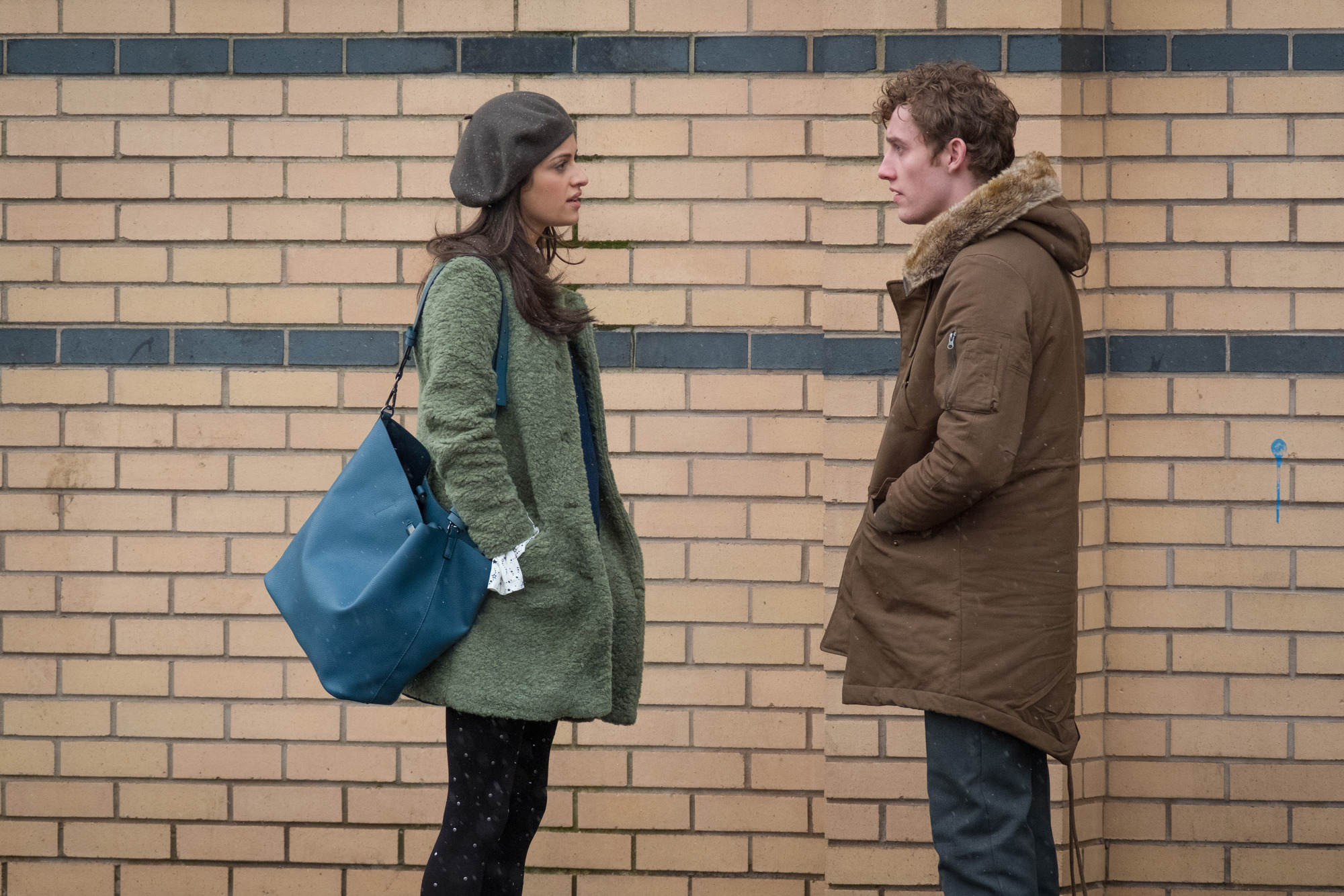
Criticism of Wanderlust’s dialogue as being “sort of stagey or a bit overwritten” has been frustrating for Payne. “I think people assume I’m bringing a skillset from the theatre and trying to shove it on telly, but the inarticulacy is bedded in for a reason.” Aaron Sorkin-style hyper-articulacy wouldn’t have been appropriate for Wanderlust, Payne says, but if viewers stick with the series, they’ll hopefully notice a meaningful change in the characters’ fluency.
“When the characters finally start speaking the truth, I hope it feels like a release for the viewer. When they can admit to the person closest to them the thing that is really scaring them, or that they feel real shame about, it feels different. Backloading masses of inarticulacy hopefully makes those moments feel like a breakthrough.”
Inarticulacy is something the series is trying to explore, he explains. “The fact that the characters can’t really talk in Wanderlust,” he laughs, “is probably not that TV-like. I wasn’t really aware of that, but I am increasingly.”
He’s also increasingly aware of TV and theatre’s respective requirements in terms of story. The original play of Wanderlust, which Payne describes as “so different” from the TV show, had only twenty-eight scenes. The TV series has…? “Loads!” he laughs. “A play is just such a tiny thing. You don’t really need a plot in a play. And, although I’m doing my best, it turns out you do need a plot in a TV show!”
The polyamory plot of Wanderlust isn’t designed to be a guide book for how to revolutionise a marriage, he insists. “The show’s not a manifesto.” It’s there to ask questions. One is whether or not a romantic commitment requires sexual fidelity. “And if it doesn’t, then why don’t we consider that?” he asks, if the alternative “is seething unhappiness to stay together?”
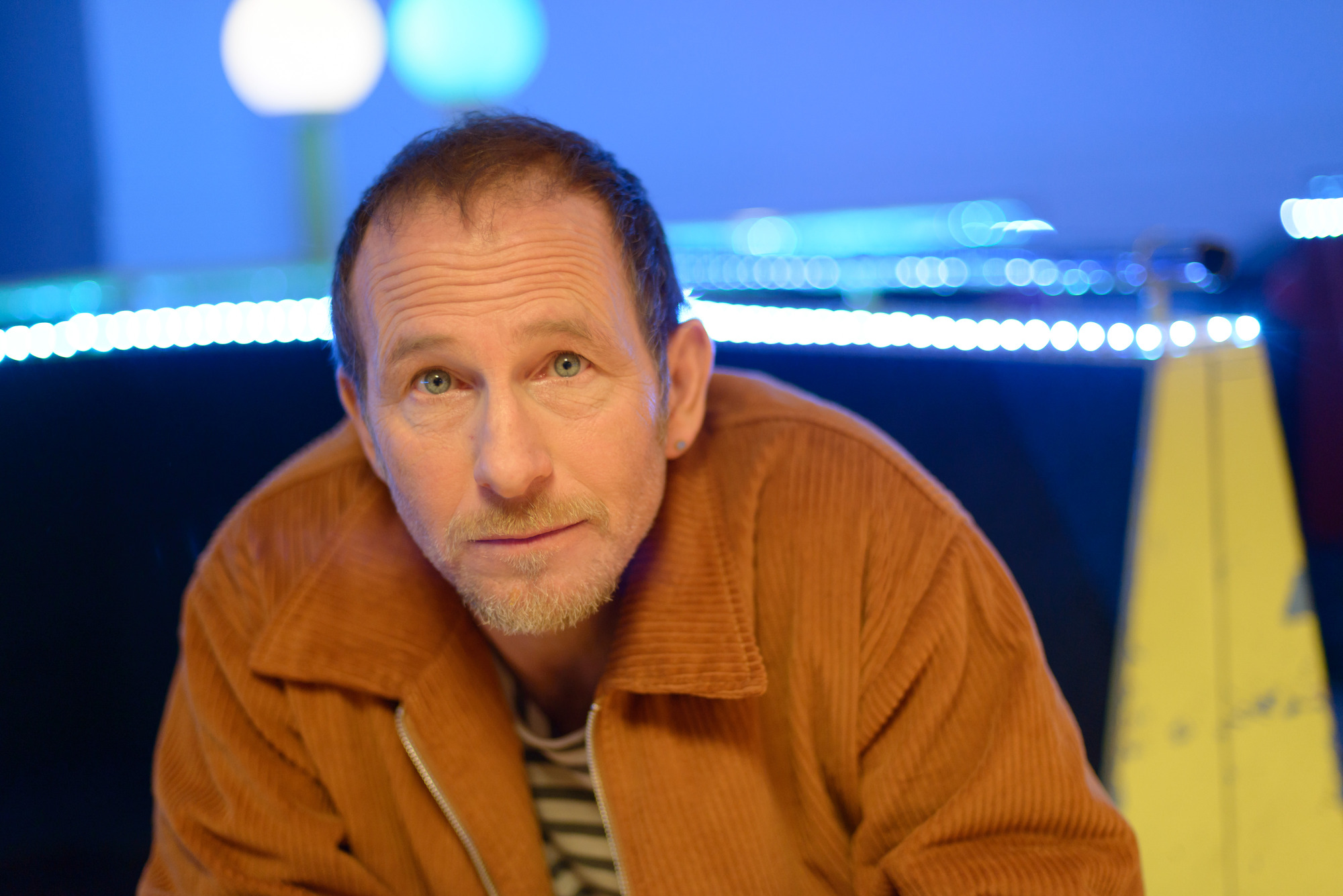
“Insofar as divorce rates,” Payne says, “monogamy is a funny old thing. Quite a lot of people get divorced, and we never really go ‘well, that’s monogamy’s fault’, but if you asked people why a polyamorous relationship didn’t work out, I think they’d probably go ‘that’s because polyamory is ridiculous’.”
These are qustions people are uncomfortable acknowledging, Payne admits. “It’s like talking about suicide. In a public setting, it’s very, very difficult. Really trying to have an honest conversation about it. It’s such an emotional subject, maybe it’s a religious thing.”
Death and sex, and—thanks to Freud and pals—psychotherapy’s ideas on how the two are related, are key to Wanderlust. “We are trying to paint a portrait of this woman at a particular moment in her life and I hope that the bits are stacking up to go somewhere.”
“Lots was made of the sex,” Payne says, “which I sort of get, but it’s funny in that it isn’t really where the show is going. It tries to ask the maybe slightly bigger question of why is Joy really doing this. Like really really. Is it just loss of desire or is there something else going on that is slightly haunting her? People that may be upset or outraged about the sex in the show might not stay with us, and that’s their prerogative. I’m sad they couldn’t get over the sex, but hopefully for the people that stick at it, it’ll become something richer and deeper.”
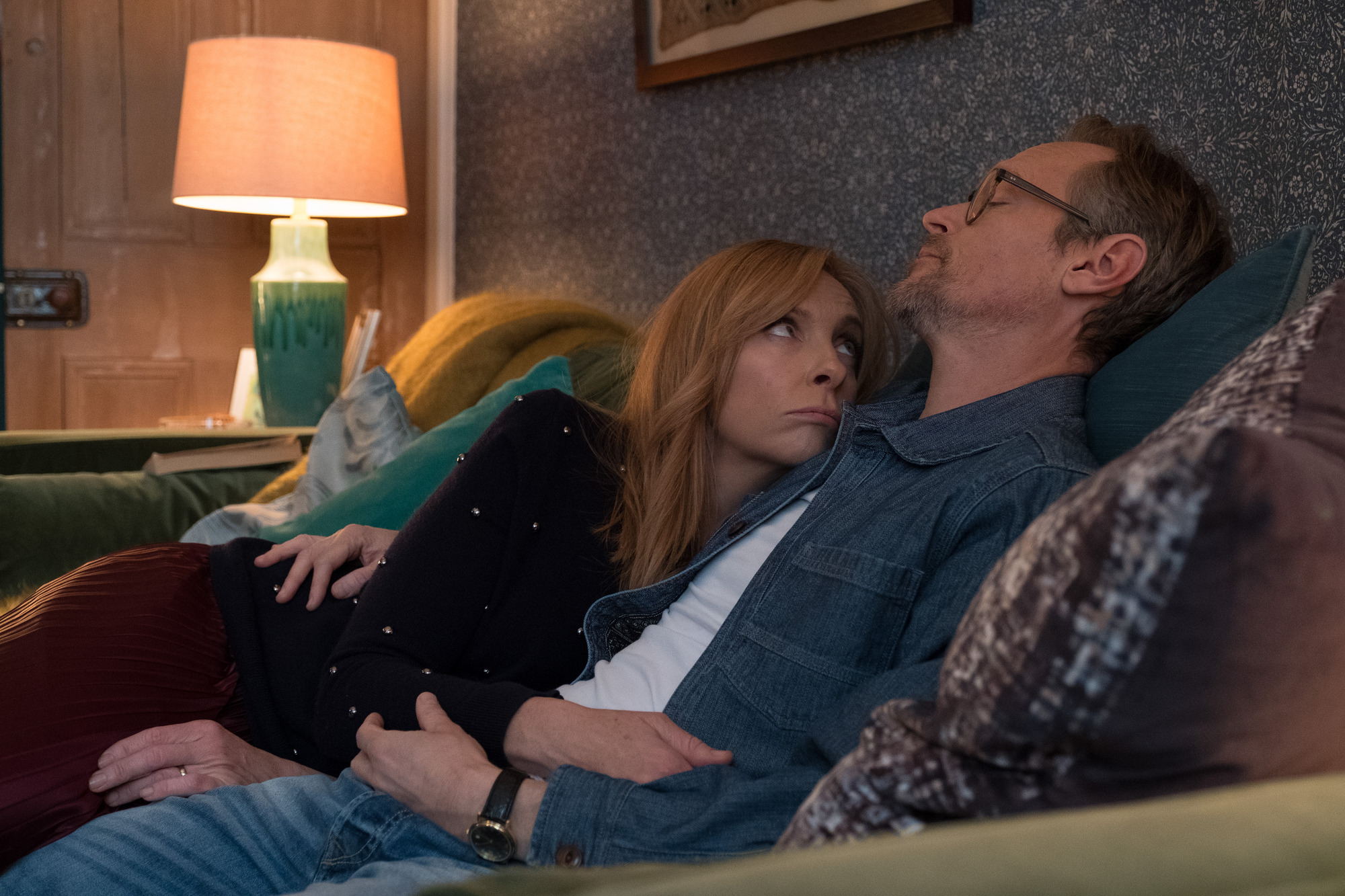
I ask if there are any more plans for a big screen adaptation of his critically lauded 2012 play Constellations (which starred Rafe Spall and Sally Hawkins in its original Royal Court run, and then Jake Gyllenhaal and Ruth Wilson on its Broadway transfer). Right now, the answer’s no. “A film would be fun,” he says, “but I don’t think I’d know how to do it!”
He’d figure it out, I say. Nick Payne’s humorous instinct for people—their inconsistencies, struggles and joys—is what makes his writing pulse. The technical stuff will all follow. He’s figuring out television as we speak.
Wanderlust continues tonight on BBC One at 9pm. Previous episodes are available on BBC iPlayer.
